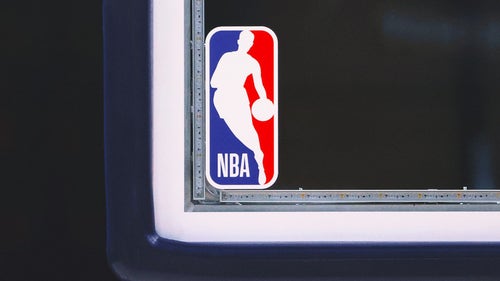
Takes a village: 'Greek Freak' got many assists growing up
ATHENS, Greece (AP) He was just a scrawny, hungry kid, the son of migrants from Nigeria, trying to survive in Sepolia, a modest Athens neighborhood.
The club coach who spotted 13-year-old Giannis Antetokounmpo and his brother kicking a soccer ball around a neighborhood field says the NBA All-Star grew up in constant fear of the police, and of being deported.
At that time, Antetokounmpo had only dabbled in basketball and was mostly interested in soccer.
''He could not make a layup and he could not dribble,'' Spiros Velliniatis said.
But the teenager's character impressed Velliniatis, with a determination and toughness that showed through.
''He was a champion before he was a basketball player,'' Velliniatis said.
Now the young man born in Athens is known to basketball fans as the ''Greek Freak,'' and he credits Velliniatis for putting him on the road to stardom.
''He was the one that gave us the opportunity to look at basketball, because me and my brothers were more focused on playing soccer because my dad was a soccer player,'' Antetokounmpo said.
Many still can't pronounce his name, but they are familiar with the athletic 6-foot-11, 22-year-old Milwaukee Bucks forward's ability to play above the rim.
But as a youngster, Antetokounmpo and his older brother, Thanasis, had to be enticed to attend basketball practices.
''I asked him about his parents and (I said) if I found a job for his parents would he (join) my club? He said yes,'' Velliniatis said.
Even with that, getting the Antetokounmpos to show up to practice with the club, Filathlitikos, which was in another neighborhood, was still a challenge.
''We said, `We must find a way to keep the kid on the court,' This would be a success for all of us,'' recalled Panagiotis Zivas, the Filathlitikos coach. ''They were children, they did not understand they had to be consistently committed.''
The family didn't have much, but neighbors would help.
People like Giannis Tzikas, a cafe owner, who sometimes prepared sandwiches for Giannis and his brothers so they would not go to practice hungry.
''Some people said to me `why are you feeding the black kids?''' Tzikas said, adding the reactions made him even more determined to help.
''He helped us a lot,'' Antetokounmpo said. ''I would see him every day. He was a big fan of the national team and he helped my little brothers, too, a lot.''
Tzikas remembers times when the Antetokounmpo brothers were not welcome on the neighborhood courts. Most of the time, Tzikas said, the boys' father took them to the courts and the kids were protected from violence.
Besides helping find the boys' parents jobs, Zivas said the general manager for Filathlitikos gave the family money to underscore the club's commitment. The family eventually moved into a better neighborhood, closer to where the club was located.
Once settled, Giannis prospered.
''He was a leader in the youth team and quickly made it to the seniors,'' Zivas recalls. ''He was the team worker. The team expected him to rebound, block. (Scoring) points did not interest him.''
In one of Giannis' last games with the junior team, he scored 50 points, and that drew the attention of several senior clubs.
Filathlitikos officials made sure the tape was circulated near and far. Interest soared, including from the NBA. One of the people who made the trip to Greece to watch Giannis play was Boston Celtics' president and former star, Danny Ainge.
''I remember that game; it was in the city of Volos and Ainge sat at the end of our bench and the opposing team's fans thought he was a Filathlitikos executive and started calling him names. Maybe they threw something, as well,'' Zivas said.
Interest in a player not even playing in a country's top division was unusual, but not unprecedented. Future Hall of Famer Dirk Nowitzki took the same route to the U.S., from Germany's second division, Wurzburg.
The Spanish club Zaragoza was the first to make an offer to Antetokounmpo.
Tzikas remembers how excited Giannis was at the prospect of going to Spain.
''He came to me and said'' `Mr. Giannis, I signed a contract with Zaragoza, they are giving me 400,000 euros a year. I'll bring my family along with me and I'll buy a car.'''
Antetokounmpo never played for Zaragoza because the Bucks made him a first-round draft pick in 2013 and his contract with the Spanish club included an NBA ''escape clause.'' He moved to Milwaukee that year and his family has since joined him.
Thanasis, a 6-7 small forward who played for the Knicks and in the NBA's D-League, now plays in the Spanish Liga, although he has not given up on his NBA dream. Their coach at Filathlitikos said their two younger brothers, Constantinos and Alex, also have NBA potential.
The brothers' basketball careers may have taken them around the world, but they continue to make an impact in Greece. Once in constant dread of being deported, Giannis now has his citizenship papers.
Giannis also has become the mainstay of the Greek national team.
''What Giannis has accomplished at his young age is simply amazing,'' Greece national teammate Kostas Papanikolaou said. ''He is an example for every kid.''
Zivas continues to see Giannis in the offseason.
''He comes here every summer, he trains and lifts weights,'' his former coach said.
In May 2016, Giannis and Thanasis, along with another little-known foreigner who has made his presence felt in the NBA - the Knicks' Kristaps Porzingis, who is from Latvia - came to Athens to play a game with assorted Greek players and veterans. An enthusiastic crowd of 5,000 crammed into the stands of a gym next to Athens' largest public high school to watch them play to a 123-123 tie.
Thanasis overshadowed the two NBA stars, scoring 69 points, 5 more than his brother. Porzingis finished with 21.
''If he had no idea how big he is in Greece,'' Tzikas said of Giannis, ''he sure found out that day.''
The scrawny youngster has come a long way.




